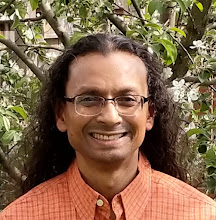
Wikipedia defines Unconditional Love as love which has no bounds and is unchanging, so in the eyes of unconditional love there is no right or wrong, good or bad, or judgement of any kind. This is the most important thing to understand, know, remember, experience and become, and regardless of whether they know it or not, everyone is on the path to becoming pure unconditional love. The purpose of spiritual practice is to simply accelerate your journey along that path.
My introduction to yoga came in the form of Raja Yoga where the student is first taught to adhere to the Yamas and Niyamas. I rejected this notion, as even when I started, the strongest value I had was for freedom, and the yamas and niyamas seemed to be about taking away my freedom. Thankfully, I soon afterwards discovered Tantra, which has freedom as its core value, and I was in complete alignment with that.
For the beginner, Tantra starts out with Panchamakara where the practices include madya (wine), māṃsa (meat), matsya (fish), mudrā (parched grain), and maithuna (sexual intercourse). These are all things that the average person understands and likely consumes or engages in, but also mistakenly assumes excludes them from spiritual practice (as per the yamas and niyamas), but this is simply not true.
By turning the mind inward during the consumption/action of these five m's, spiritual knowledge is gained and spiritual advancement takes place. This is the beauty of Tantra, as it makes spiritual practice available to all.
In this post on diet, I explain how a natural evolution in diet takes place in conjunction with spiritual advancement, but even after reaching the breatharian state, your freedom is not limited, as you may still choose to consume wine or meat if you so desire without experiencing any negative effects. Trailanga Swami was famous for even drinking deadly poison without experiencing any negative effects.
Perhaps you are vegan and never consume alcohol, but with other friends you end up visiting the home of someone with a vineyard. The owner talks so passionately about his vineyard and the extreme care and attention he gives to growing his grapes and making his wine, that his love is clear for anyone to see. When he then offers a glass of his wine to you, what do you do? Do you look at the wine as if it is poison and refuse? Do you try to explain your spiritual goal of avoiding alcohol and then refuse? Do you lovingly accept it, but then pour it down the sink when no one is looking? Or do you lovingly accept it, drink it and savor every last drop, while imagining being filled with the love that went into growing the grapes and making the wine?
Certainly if you are going to be visiting the vineyard owner often due to perhaps a common interest in ecovillages, then you will need to explain your spiritual goals regarding alcohol, but is it appropriate to do so the first time you meet someone new?
During my first year of yoga practice (2001/2002), I followed the path of strict discipline and refused all food and drink I was offered, eating only what I had prepared myself. This behavior pretty much alienated almost everyone in my life. However, I did have many powerful experiences as a result, including being flooded with unconditional love in the summer of 2002, while meditating on the anahata kshetram.
I experienced a sensation of intense beauty that I reveled in for some time, and even though the experience seemed to refuse to end, I decided it was time to stop meditating. As I opened my eyes and began to move, I realized my shirt was soaking wet and I began wondering where the water was coming from. I soon realized it was dripping off my cheeks and chin, and that I was still weeping uncontrollably.
I got up and walked around, tried to think of something else, but this intense sensation of beauty, love, and joy that was making me weep, refused to leave. Finally, after about an hour, it abated, but I was forever changed. So while it was strict discipline that got me to this experience, it is unconditional love that has guided me ever since.


No comments:
Post a Comment